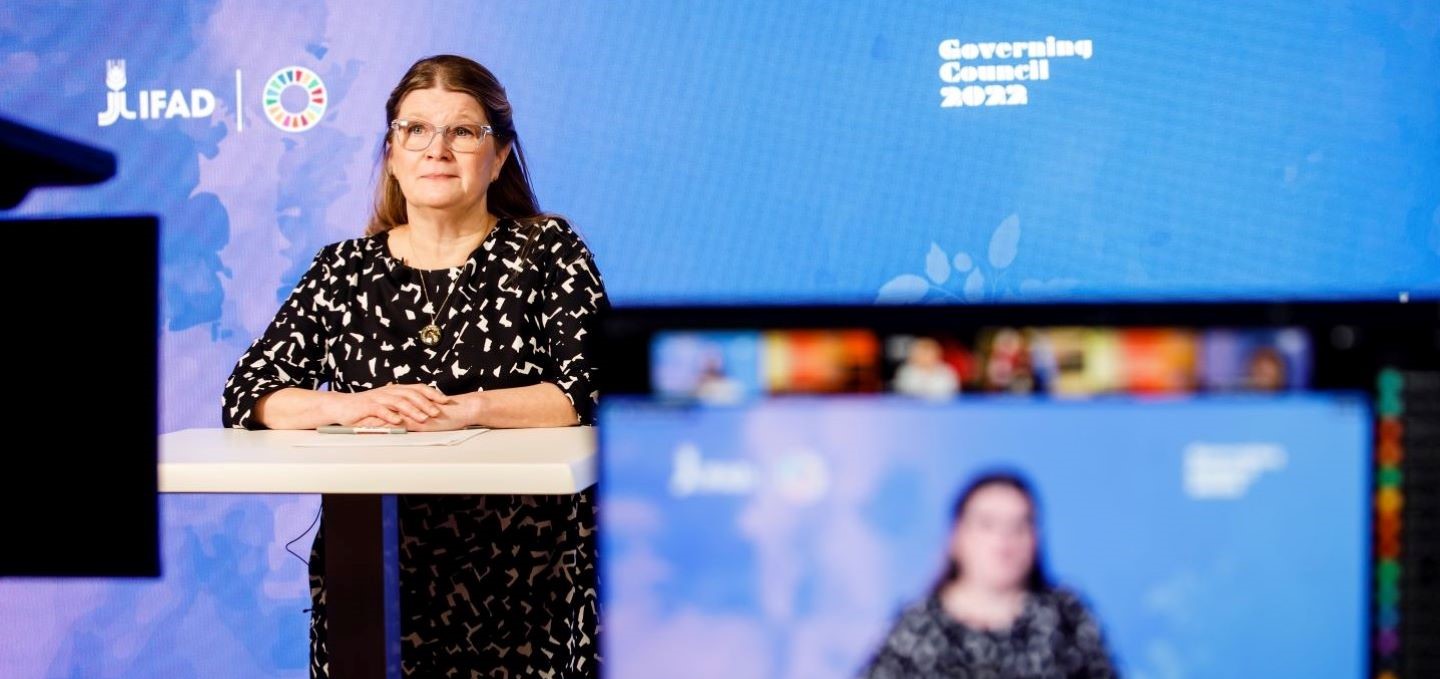The need for better donor coordination: Building long-term resilience against food systems crises
IFAD Asset Request Portlet
Asset Publisher
The need for better donor coordination: Building long-term resilience against food systems crises
Estimated reading time: 3 minutes
These days, between the Ukraine war, COVID-19, climate change, and rising food costs, it feels like the vulnerability of the world’s food systems is on full display. Each of these scenarios is challenging enough on their own, but together, they’re exacerbating the pre-existing problems with our food systems, further disrupting value chains and the balance of supply and demand, and threatening the livelihoods of small-scale farmers worldwide. They even have the potential to entirely derail progress on all of the Sustainable Development Goals, particularly SDG2 (Zero Hunger).
As I watch the current situation unfold, multilateralism (collaboration among three or more stakeholders, especially national governments) is proving to be the only means through which the world can overcome this emergency. In fact, in this escalating scenario, the international donor community – which includes bilateral agencies, financial institutions, development banks, philanthropic foundations and development partners – has a clear mandate and responsibility to protect the world’s most marginalized people, many of whom are small-scale farmers. This will require more than just responding to short-term realities: fully protecting these groups means strengthening global medium- and long-term resilience against both current and future shocks.
But to address the current crisis, we also need to look back at earlier, similar situations and learn from them. During the 2008/2009 food crisis, donor funding for short-term food security increased dramatically. IFAD, for its part, dedicated more than US$200 million to boosting agricultural production. But with too much emphasis on emergency aid as opposed to medium- and long-term investments, and insufficient coordination among donors, many of these efforts were not as successful as expected or planned. Ultimately, as many as 155 million people descended into poverty.
I have witnessed these dynamics before, when working for a donor Government and when representing multiple countries at the World Bank Board. Countries are working towards similar goals, yet sometimes pushing for their own political agendas. We all believe in long-term resilience of our food systems; however, all too often, short-term solutions are leading the global agenda, and countries – and donors in general – end up going in different directions. We can – and must – do better!
I believe donor coordination is a critical factor for successfully addressing the current food crisis. It is also important to IFAD’s mission, which is evidenced by our role as the host of the Secretariat of the Global Donor Platform for Rural Development (GDPRD), a network that brings donors together for strategic dialogue and collaboration on rural development and food systems. The Platform has recently released a white paper for donor action called “Transforming Food Systems: Directions for Enhancing the Catalytic Role of Donors”. The paper provides global donors with a menu of options to support food systems transformation, all focusing on the need for better coordination.
Donors need to coordinate with each other, and partner with civil society organizations, national governments, and the private sector. By collaborating, they can increase collective investments for infrastructure and value chain development, learn and share lessons from field-level projects, and co-design policy mechanisms to address national-level challenges. They can also catalyse finance from the private sector – an especially important avenue to pursue, given that there are more financial resources available from private companies than donors can mobilize through their programmes. While there is a need for short-term funding to address the immediate humanitarian situation, the white paper emphasizes that we must support long-term investments to address the root causes of the ongoing and future food system crises.
We know that resilient food systems are the key to avoiding future crises, and we have resources, like this white paper, that offer donors concrete action steps to achieve this transformation. Through coordination, the goals and targets of donor investments can be magnified and scaled up for medium- to long-term food systems resilience, to protect the livelihoods of vulnerable rural populations.
Let's not waste time – we need all stakeholders to cooperate and coordinate to ensure sustainability and inclusivity in our food systems. Short-term measures to address sudden crises must not compromise the long-term goals for sustainable, inclusive, resilient food systems.
Read the full white paper here.
Explore the Global Donor Platform for Rural Development.
Publication date: 26 May 2022